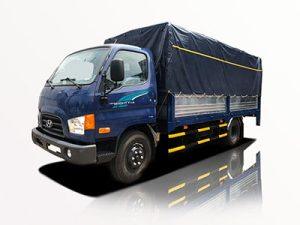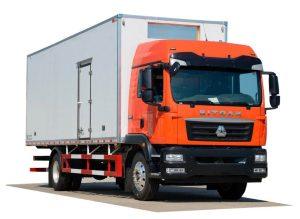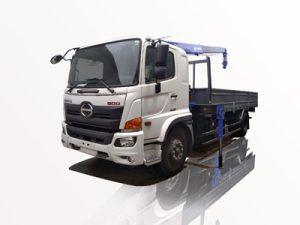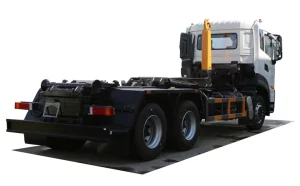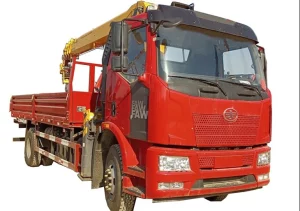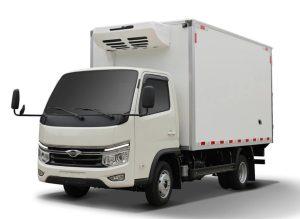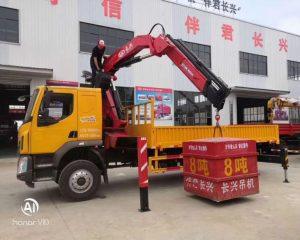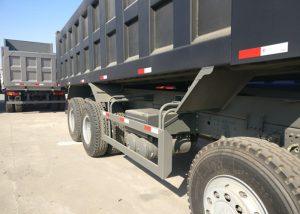Monday to Saturday - 8:00 -17:30
The Ultimate Guide to Semi Crane Trucks: Everything You Need to Know
Semi crane trucks have revolutionized the heavy-duty transportation and construction industries. These versatile vehicles blend the features of a semi-trailer truck with a crane, making them invaluable for various applications such as lifting, moving, and transporting heavy cargo. In this comprehensive guide, we will explore everything you need to know about semi crane trucks, including their types, functionalities, maintenance tips, and practical applications.
What is a Semi Crane Truck?
A semi crane truck is a specialized vehicle that combines a semi-trailer truck chassis with an integrated crane. This design allows the truck to transport heavy materials and equipment while also enabling it to lift these loads directly from the ground. Semi crane trucks are commonly used in construction, logistics, and various industrial applications.
Key Features of Semi Crane Trucks
- Integrated Crane: Most semi crane trucks come equipped with a hydraulic crane that can lift weights ranging from a few tons to over 30 tons, depending on the model.
- Modular Design: Many models allow for interchangeable trailer setups, offering flexibility for different loads.
- Enhanced Stability: Designed to provide stability and control when lifting, semi crane trucks often feature outriggers or stabilizing legs.
- High Load Capacity: These trucks have a high Gross Vehicle Weight Rating (GVWR), making them capable of transporting substantial loads.
Types of Semi Crane Trucks
Semi crane trucks can be categorized based on several factors such as crane type, truck chassis configuration, and application. Below are the primary types of semi crane trucks:
1. Rough Terrain Semi Crane Trucks
These trucks are designed for off-road conditions and can maneuver easily across uneven surfaces, which is ideal for construction sites.
2. All-Terrain Semi Crane Trucks
All-terrain trucks are built for flexibility and can traverse various terrains, including highways, making them suitable for multiple applications.
3. Loader Crane Trucks
Loader cranes are mounted behind the cab and are ideal for loading and unloading cargo. They are perfect for companies that require frequent loading operations.
4. Flatbed Semi Crane Trucks
These units combine a flatbed with an integrated crane. They are primarily used to transport large and bulky items while offering the advantage of on-site lifting.
Understanding Crane Specifications
When choosing a semi crane truck, understanding the crane specifications is crucial. Here are some important terms to know:
Payload Capacity
This refers to the maximum weight the crane can safely lift. This varies significantly from model to model and should be matched to your job requirements.
Working Radius
The working radius is the distance from the center of the crane’s rotation to the load. This measurement is critical for determining how far the crane can safely extend to lift or lower a load.
Height and Reach
Different cranes have varying heights and reach capabilities. It is essential to consider these measurements based on your site requirements and the height of the loads.
Applications of Semi Crane Trucks
Semi crane trucks find applications across various industries. Below are some practical examples:
1. Construction Industry
In the construction industry, semi crane trucks are used to lift heavy materials like steel beams, concrete blocks, and equipment directly to the worksite.
2. Utility Maintenance
Utility companies employ semi crane trucks to perform maintenance on power lines and telecommunications infrastructure, where lifting is necessary.
3. Shipping and Logistics
These trucks are advantageous in logistics for loading and unloading shipping containers and heavy packages efficiently.
4. Heavy Equipment Transport
Semi crane trucks are excellent for transporting heavy machinery and equipment to and from job sites, making them essential in the heavy equipment industry.
Essential Maintenance Tips for Semi Crane Trucks
Maintaining your semi crane truck is vital for optimal performance and safety. Here are some essential maintenance tips:
Regular Inspections
Conduct frequent inspections of the crane, including hoisting equipment, hydraulic systems, and structural components, to ensure everything is in good working order.
Routine Oil Changes
Changing the engine oil and hydraulic fluid at regular intervals helps in preventing engine wear and maintaining operating efficiency.
Tire Maintenance
Inspect tires for proper inflation, tread wear, and damage. Properly maintained tires ensure good traction and stability on various surfaces.
Brake Checks
Regularly inspect and test the braking system to ensure safety while operating. Any issues must be addressed immediately to prevent accidents.
Cleaning and Lubrication
Regular cleaning and lubrication of moving parts help to prevent rust and wear while ensuring smooth operation.
Choosing the Right Semi Crane Truck
Considering various factors is crucial when selecting a semi crane truck for your needs:
Load Requirements
Assess the type and weight of loads you will be lifting and transporting. Ensure your selected truck can handle these specifications.
Terrain and Job Site Conditions
Consider the terrain where the truck will be operating. If the job sites are uneven or have obstacles, select a rough terrain or all-terrain model.
Fuel Efficiency
Evaluate the fuel efficiency of the truck and crane. Fuel costs can heavily impact long-term operational expenses.
Regulatory Compliance
Ensure that the semi crane truck meets industry regulations and safety standards for transporting loads in your area.
Cost Considerations for Semi Crane Trucks
Investing in a semi crane truck involves several cost factors, including:
Initial Purchase Price
The upfront cost can vary greatly depending on the make, model, and configuration of the semi crane truck. New models will generally cost more than used ones.
Operating Costs
Factor in fuel, maintenance, insurance, and repair costs when budgeting for your semi crane truck. Operating costs can add up over time.
Depreciation
Like any vehicle, semi crane trucks depreciate over time. Consider this when calculating long-term costs and reselling value.
Financing Options
Explore financing options if the upfront cost is a barrier. Many dealers offer financing plans that can ease the financial burden.
Emerging Technologies in Semi Crane Trucks
As technology advances, semi crane trucks are being equipped with innovative features:
Telematics Systems
Modern telematics allow operators to track vehicle location, monitor performance, and improve efficiency through data analysis.
Automatic Load Monitoring
This feature helps ensure that the crane is not overloaded by automatically calculating and monitoring load weights.
Improved Hydraulic Systems
Advancements in hydraulic technology have led to quicker and more efficient crane operations, increasing productivity on job sites.
Frequently Asked Questions (FAQ)
1. What is the difference between a crane truck and a semi crane truck?
A crane truck typically has a fixed crane mounted on a truck chassis. In contrast, a semi crane truck has a semi-trailer body that can detach, allowing more flexibility and weight distribution.
2. How do I know if my semi crane truck is operating within safe limits?
Always consult the manufacturer’s specifications for weight limits and regularly inspect the crane’s operational functioning to ensure safety.
3. What types of loads can a semi crane truck lift?
Semi crane trucks can lift a wide variety of loads, including construction materials, machinery, shipping containers, and other heavy items, based on the crane’s capacity.
4. Are semi crane trucks road-legal?
Yes, semi crane trucks are road-legal as long as they comply with local regulations regarding vehicle size, weight limits, and safety standards.
5. How often should I maintain my semi crane truck?
Regular inspections should be conducted at least once a month, while oil changes and other maintenance tasks should be performed according to the manufacturer’s recommendations.
6. What training is required to operate a semi crane truck?
Operator training typically includes understanding crane functions, safety measures, and local regulations. Many places require certifications to operate these specialized vehicles.


